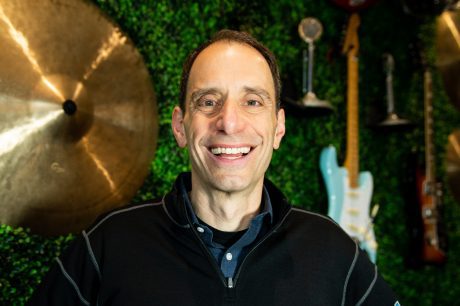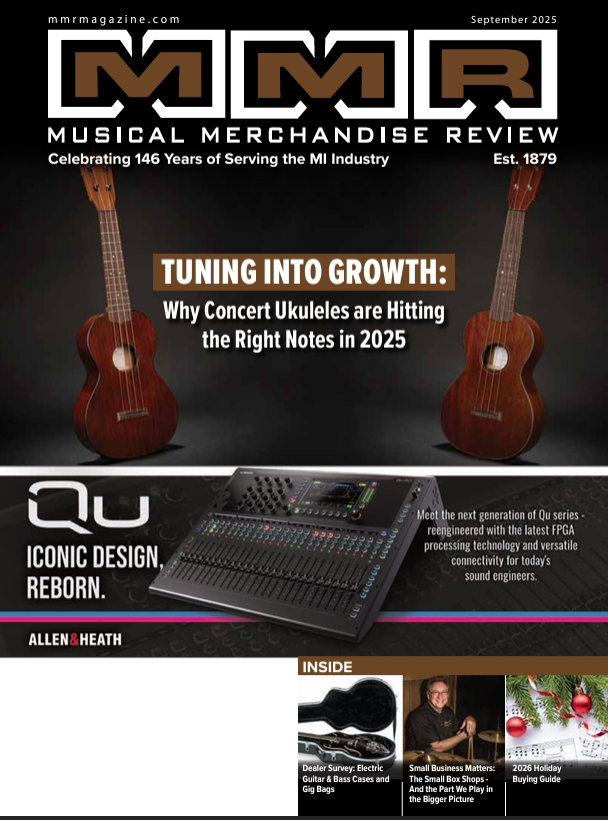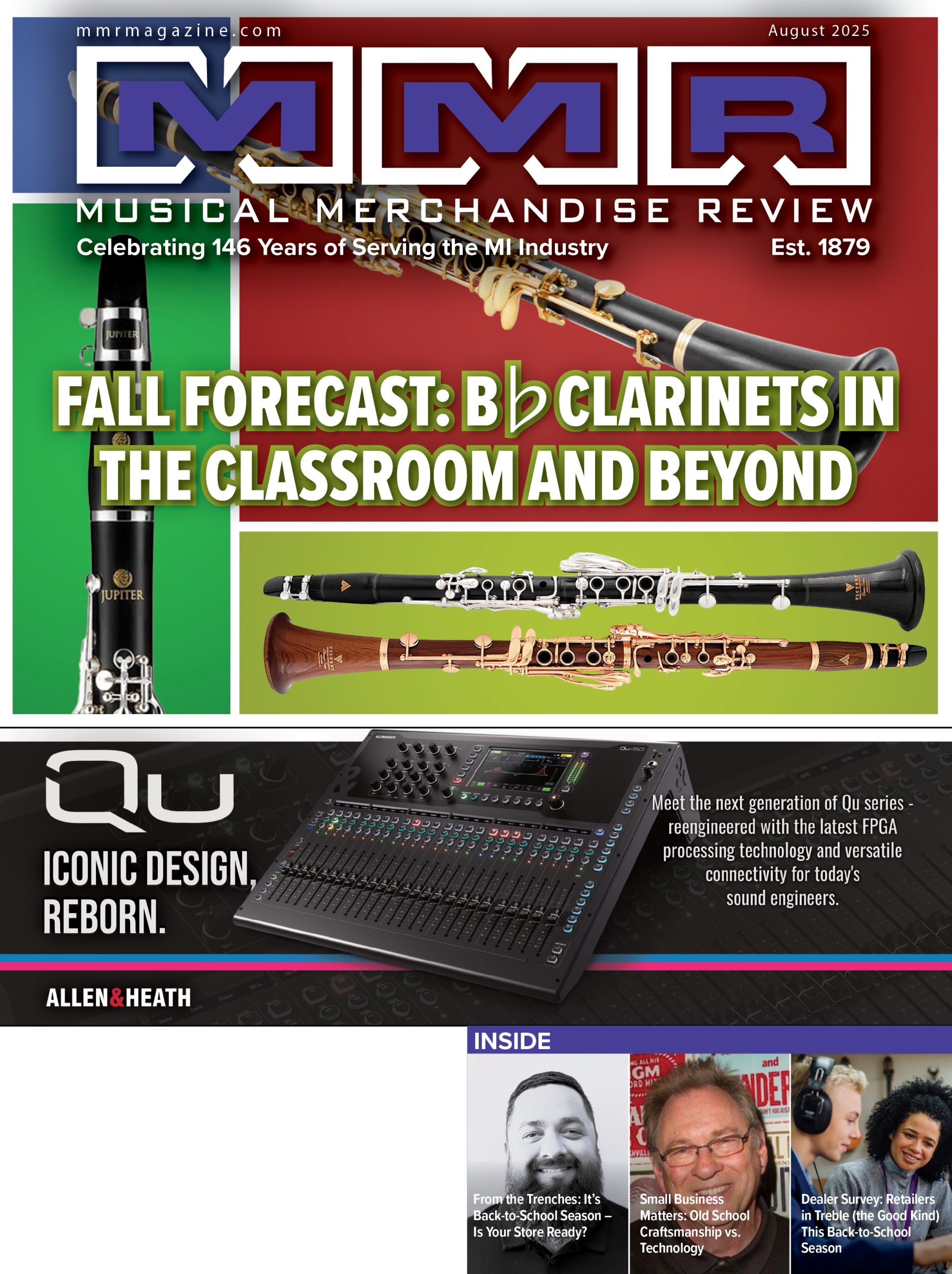 On January 28 of this year, Reverb – the largest online marketplace for purchasing and selling musical instruments and related gear – welcomed David Mandelbrot as the company’s new CEO. And then… everything changed, for everyone.
On January 28 of this year, Reverb – the largest online marketplace for purchasing and selling musical instruments and related gear – welcomed David Mandelbrot as the company’s new CEO. And then… everything changed, for everyone.
We recently sat down with Mandelbrot to discuss the very unique situation he stepped into and how Reverb is helping MI retailers connect with customers during the pandemic and beyond…
Can you briefly talk about your own background and how you wound up at Reverb?
Reverb is truly my dream job, combining my passion for music gear with my experience growing marketplace businesses. I’m an avid acoustic guitar player and my wife and three kids all play instruments. I fell in love with Reverb long before I joined the team because it let me participate in a marketplace for musical instruments made up of people that shared my passions. During my first day, I felt almost star-struck as I met the people who had so thoughtfully created one of my favorite sites as well as the YouTube videos that I watched over and over to learn and expand my playing.
Prior to joining Reverb, I spent nearly six years as CEO of Indiegogo, which connects entrepreneurs and small businesses with consumers that help fund their ideas and bring them to life. Supporting business owners was one of my favorite parts about working at Indiegogo and I was excited for the opportunity to continue working with store owners and entrepreneurs at Reverb. It’d be an understatement say that your first few months at the company coincided with an extraordinarily unusual time.
To what degree has the COVID-19 pandemic impacted your tenure at Reverb?
Over the past few years, musicians have been buying more and more gear online. The shift to online was already well underway, but the current situation has sped up that shift dramatically. Based on what we’ve seen on Reverb, more people are buying musical instruments online than ever before. Now that these consumers are comfortable with the idea of ordering a guitar, a synthesizer or a drum set online – and recognize the much greater variety of used and new instruments available online – we anticipate they’ll continue to shop for gear online.
Joining the company during this time has only strengthened my commitment to ensuring that sellers can rely on Reverb now and in the future. We’ve seen an influx of first-time buyers and beginners on Reverb, which means it’s our job to keep them engaged and coming back to our sellers. More people are buying instruments online, so it’s our responsibility to make investments in marketing aimed at getting our sellers’ gear in front of anyone who is looking for an instrument anywhere online so that our sellers can uniquely benefit from this influx of new buyers. Additionally, as our community grows and includes more first-time buyers, our customer support team needs to grow and evolve alongside it. The current situation has made it clear where we need to invest to be the best partner to our sellers.
Related to the above: with many brick-and-mortar retail stores closed (or at least temporarily closed until recently), it seems that an avenue like Reverb is uniquely well positioned to offer sellers and end-users an alternative means of conducting business. Could you talk about what Reverb has been doing in recent months to reach out to and partner with more MI retailers?
As the situation surrounding COVID-19 started to evolve, many of our sellers’ first phone calls were to our team. In fact, one of our sellers called his Reverb account representative frantic because his state’s regulations were very unclear and he wasn’t sure what he was allowed to do. After calling that sellers’ governor’s office to personally confirm if and how the retailer could stay open, this Reverb rep and another team member went on to research every single state’s retail regulations so that our team could better support our sellers. As our sellers shifted their businesses online, our team recorded questions and gathered info – like which shipping carriers were experiencing delays – and within 24 hours, we had an entirely new section of our Help Center dedicated to COVID-19. We also adjusted several of our policies, like giving sellers more time to ship, if needed, as long as they communicated with the buyer.
When large retailers’ distribution centers were experiencing delays, we worked closely with the sellers on Reverb to help ensure that they were still shipping on time. Reverb’s marketing team always works on behalf of sellers to attract buyers to their inventory and during this time, our team has found new ways to promote our sellers. We set up a dedicated email (geardeals@reverb.com) where sellers can let us know about unique gear and deals we can promote, and worked with brands like Orangewood Guitars and Focusrite to run dedicated promotions, helping increase their online sales significantly as buyers were buying more gear online. Importantly, we’ve worked hard to not only get sellers’ gear in front of more buyers, but also to help those buyers feel confident about purchasing from our sellers during this time. As an example, we’ve added messaging beside each piece of gear for sale on the site that assures buyers that sellers are shipping gear in a timely manner.
How does Reverb differentiate itself from other eCommerce sites – eBay, in particular – when it comes to partnering with MI dealers?
Reverb was built from the ground-up to support music sellers and musicians. We never sold PEZ dispensers and we don’t have a section of our site for automobiles. Reverb was built for the MI industry. We wake up each day focused on how to get sellers’ musical instrument inventory in front of more musicians. We create incredible videos and articles to help buyers make music gear purchase decisions. Among others, there are three main reasons sellers choose to use Reverb.
First, Reverb provides sellers with access to millions of buyers – and it’s not just the quantity of buyers that sellers love, it’s the quality. I’ve talked to sellers who’ve told me that they rarely, if ever, have returns on Reverb because our buyers are knowledgeable, know what they’re looking for, and come to Reverb specifically to buy music gear. Even as our marketplace grows and attracts more buyers, we have a team in place to help ensure that buyers can make informed purchases of gear they will love.
Second, our live customer support team full of musicians is unlike any other customer support team I’ve ever seen. Not only do buyers and sellers get access to knowledgeable gear experts if a question or issue arises, but our top sellers get support from a team whose job is to help them succeed on Reverb. Many of our retailers consider their Reverb rep as an extension of their own team.
Finally, Reverb was built for selling gear. Everything you experience on our site – from product demos to shipping tools – was built by and for people who love gear. That includes our marketing and tech teams, who come to work each day to create tools and run campaigns that make it easier for dealers to connect with buyers.
What are your expectations – both for Reverb and the MI market in general – in the coming months?
Online sales now account for more than half of all MI industry transactions – and that percentage is higher when you dig into specific categories, like recording products. As consumers remain cautious about shopping in stores and shops operate with limited capacity and restrictions, I anticipate that players will continue to buy gear online. Long-term, I expect that trend to continue now that consumers have experienced first-hand how easy it is to purchase a guitar or synthesizer online and how exciting it is when that new gear arrives right at your door.
Based on what we’ve seen on Reverb, it appears that many people are picking up instruments for the first time or trying out new gear, which is encouraging. At Reverb, our mission is to make the world more musical. The trends we’ve seen online are exciting because we have an opportunity to engage with the beginners that have been learning to play as well as the more experienced players who have been experimenting with new sounds. For our team, that means creating content and campaigns to help players stay inspired and feel informed ahead of their next purchase.
For sellers, that means finding ways to take what makes them special – like vintage gear expertise or incredible customer service – and translate that to their online channels to build loyalty.


























Looking Back on 2025: A Year of Controlled Chaos (Emphasis on “Controlled”)